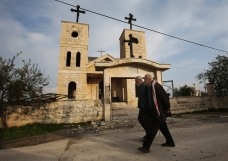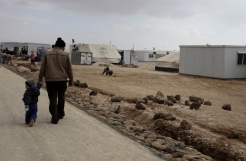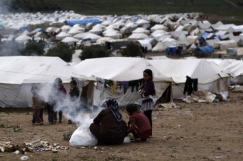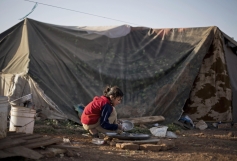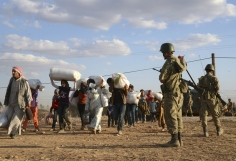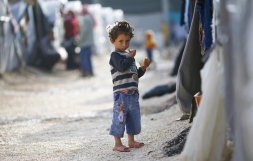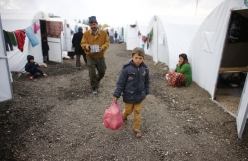A report by Amnesty International today strongly criticises the international response to the Syrian refugee crisis, and has called on Western governments to offer more places for people who have been displaced by the conflict. So far, the UK has pledged "several hundred" places.
The UK is now one of the biggest donors to support relief work to the refugees close to the situation, having pledged £600m in donations. However it is more reluctant to offer places in the UK for Syrians to move and resettle. Under the Vulnerable Persons Relocation Scheme, so far only 90 Syrians have arrived in the UK. Under their own steam, several thousand Syrian refugees have reached British shores. However Oxfam, the Refugee Council and other charities have called on the UK government to offer 10,000 places.
Amnesty International has described the response from some countries as 'shameful' in a report today, ahead of the UN pledging conference in Geneva on 9 December.
Amnesty said that 3.8 million refugees from Syria (95 per cent) are in just five countries - Turkey, Lebanon, Jordan, Iraq and Egypt. Some of those countries are now struggling to cope and have placed severe restrictions on the entrance of refugees. Many richer countries have offered no places at all, such as Russia, China and Saudi Arabia. However Germany and Sweden have been more forthcoming: Germany has pledged 30,000 places for Syrian refugees; nearly half the global total available places. Excluding Germany and Sweden, the rest of the EU has offered only 5,105 places for refugees, according to Amnesty International.
"The shortfall in the number of resettlement places for refugees offered by the international community is truly shocking. Nearly 380,000 people have been identified as in need of resettlement by the UN refugee agency, yet just a tiny fraction of these people have been offered sanctuary abroad," said Sherif Elsayed-Ali, Amnesty International's Head of Refugee and Migrants' Rights, in a statement.
"The World Food Programme announcement earlier this week that it has been forced to suspend food aid to 1.7 million refugees due to a funding crisis underscores the abysmal response of the international community.
"The complete absence of resettlement pledges from the Gulf is particularly shameful. Linguistic and religious ties should place the Gulf states at the forefront of those offering safe shelter to refugees fleeing persecution and war crimes in Syria."
Although the UK's donations to the relief effort have been praised, they depend on the neighbouring countries hosting the very large number of refugees. However, if we are not willing to host people ourselves, there is a danger we could set a 'bad example', according to experts.
"We think that the UK's contribution to aid is really good, but that's not enough," said Lisa Doyle at the Refugee Council, to Christian Today. "We believe the UK government needs to do more in order to help people come out of the region. We should expand this resettlement programme – a few hundred is a drop in the ocean, it is just not good enough."










